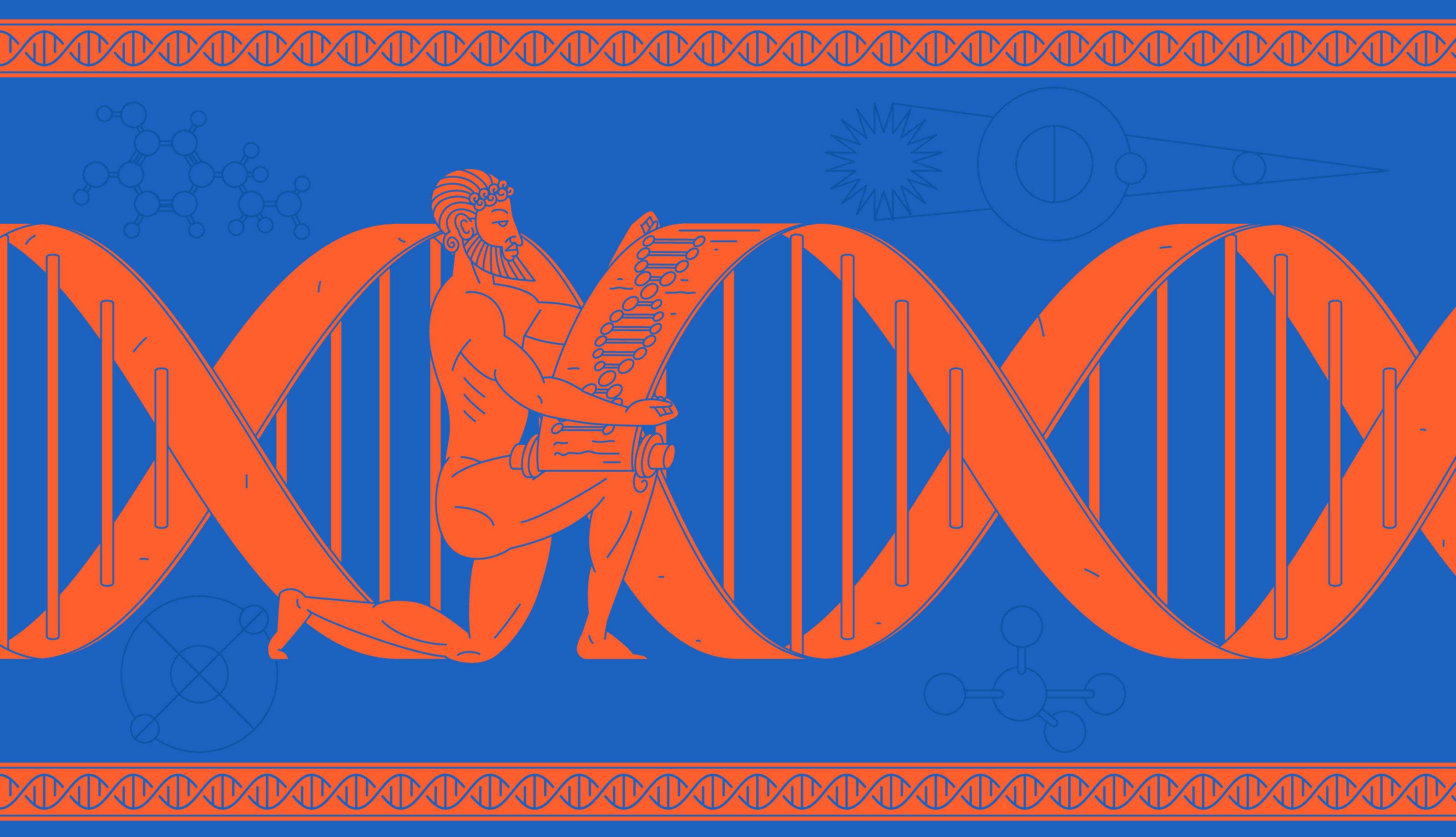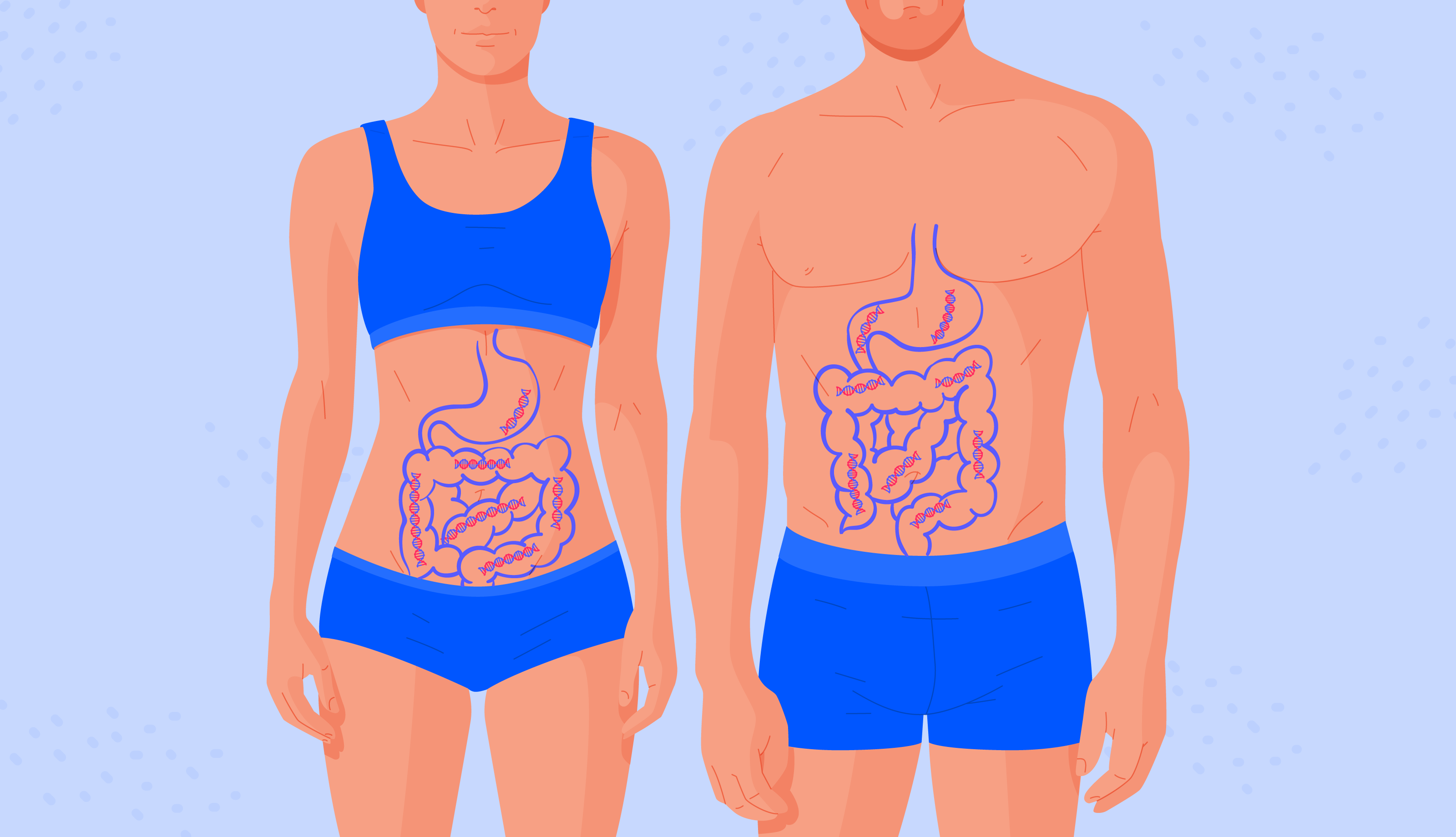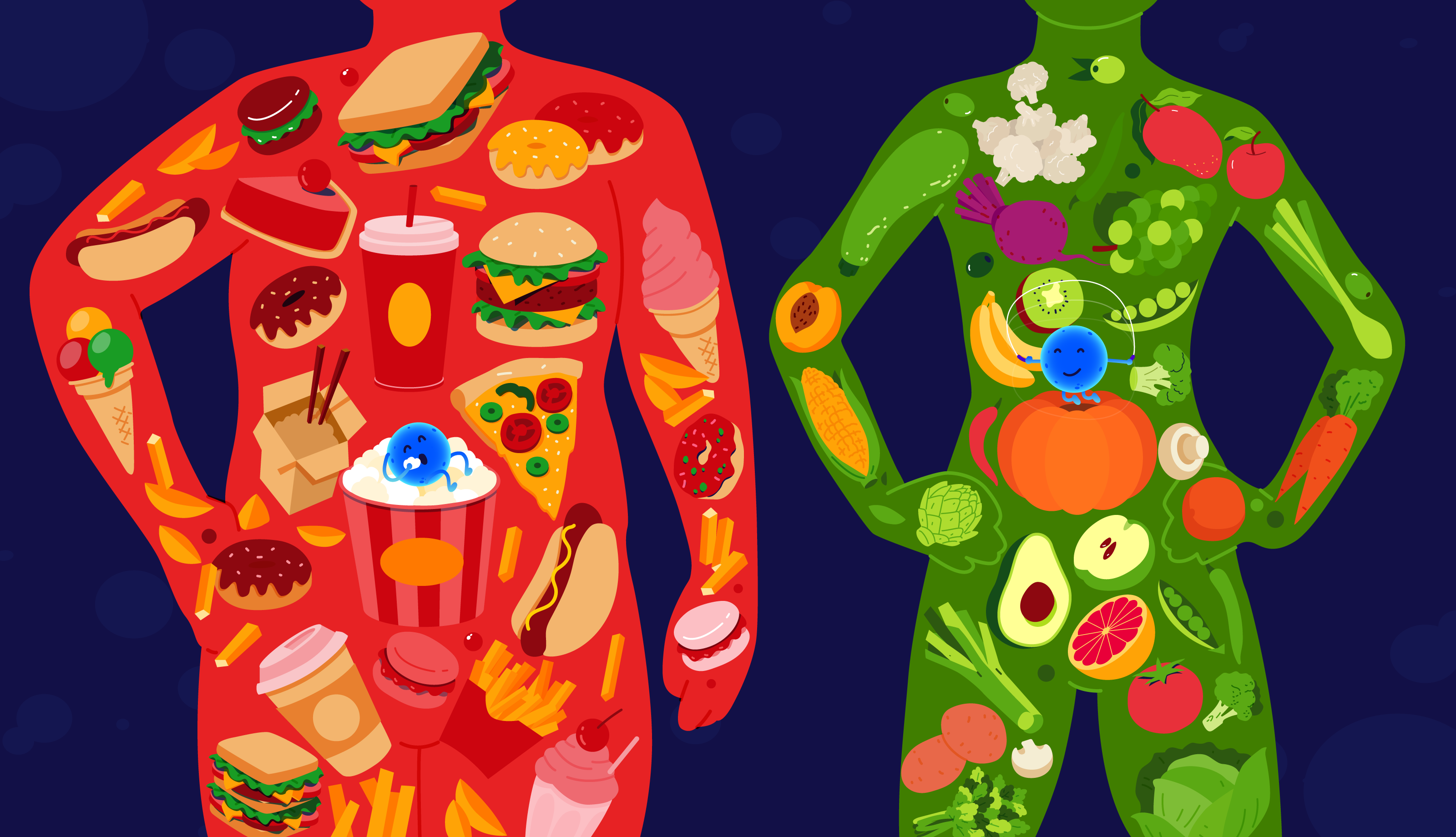Just because a DNA test promises to reveal everything about you doesn’t mean it should, or that it can. Here are the three main DNA test myths and misconceptions.
There has been a rise in popularity in at-home DNA test kits professing to unlock the secrets of your genome, explaining everything from ancestry to fitness, diet, and even beauty preferences. And so, it’s opened a curiosity within many people with hopes that these tests can answer questions about who they are.
Table of Contents
- 1. Why’s the world obsessed with the at-home DNA test?
- 2. Common DNA test mistakes
- 3. Sports genes DNA test misconceptions
- 4. Reliable DNA sports traits to look for
- 5. Personal diet DNA test misconception
- 6. Proven ways to manage your weight
- 7. Beauty and cosmetics DNA test misconception
- 8. The final word on DNA misconceptions
In many circumstances, DNA testing is useful and can drive important lifestyle changes for health. A genealogical DNA test kit may even answer questions relating to paternity and ancestry. However, some claims need to be addressed because there’s simply not enough evidence to substantiate them right now.
Why’s the world obsessed with at-home DNA tests?
Your genes are what make you unique. They will not be entirely the same as someone who has lived before you or who will live after you. Because they influence the way you look, you’ll have certain characteristics that are like other members of your family, like your dad’s eyes or your mum’s nose.

More importantly, genes contain the blueprints for your body’s proteins which are essential for the many physiological processes that keep you alive and breathing every day. They are made of deoxyribonucleic acid (DNA for short) which has two important properties: it can make copies of itself and it carries important information.
Common DNA Test Mistakes
- If your saliva sample has been contaminated during collection by food, your partner’s saliva, cigarettes, toothpaste, or otherwise, the lab will not be able to analyse your sample.
- If you don’t collect enough saliva for analysis, the lab will not be able to analyse your sample.
- If you have had a bone marrow transplant, you will not be able to get accurate DNA test results.
- If you are seeking a medical diagnosis or treatment for a health-related issue, consult your doctor. Do not use at-home DNA testing.
- If you have a family history of hereditary disease, you should seek diagnostic testing, not online DNA tests for consumers.
DNA is so long that it’s packed into special structures called chromosomes. Humans have 23 pairs of chromosomes, so 46 in total. The last pair (number 23) is distinctive because it determines gender. These sex chromosomes will either be XY for a boy or XX for a girl.
A heritage DNA test provides information about your ancestry, but there are new and exciting trends emerging in genetic testing regarding health and fitness. Although they are providing the population with interesting and useful knowledge, there are some common myths too.
☝FACT☝What is a DNA paternity test? A paternity test establishes the genetic relationship between a man and a child to determine whether he is the father.
DNA test misconception 1: genes and sports
Some DNA tests claim that their results will tell you what kind of sport you will be good at. You might have already seen tests claiming to assess an individual’s potential in excelling in a sport by tracking markers associated with strength or endurance. Some tests use specific genes such as ACTN3, a gene associated with speed and power.
The ACTN3 gene is linked with the regulation of fast-twitch muscle fibres that are associated with strength and speed. Early evidence also suggests that ACTN3 could participate in recovery, injury risk, and training adaptation.
But it’s exactly that: early and anecdotal evidence. Until there are large scale studies providing strong causal evidence of a relationship between ACTN3 and performance, it is impossible to say whether this is true. In the meantime, we should look to experts for guidance.
The Association for Molecular Pathology (AMP) opposes the marketing of DNA consumer tests for athleticism because the claims are unsubstantiated.
There are plenty of instances where athletes who have excelled in a discipline, like sprinting, have taken a DNA test and their genetic markers are not usually associated with people who do well in these sports. Remember, taking a test that makes unproven claims can influence the decisions you make in the future.
Reliable DNA sports traits
According to our team of geneticists, there is only enough evidence to look at some very specific parameters that are involved in genetic predisposition to strength, speed and endurance sports.
| Marker | Reason | Exercise type |
|---|---|---|
| Insulin-like growth factor 1 (IGF-1) | This hormone is associated with muscle mass. It is influenced by several factors, including diet and genetics. Some genotypes are associated with greater muscle tissue growth. | Strength & speed |
| Red blood cell count | Red blood cells transport oxygen to the tissues, and oxygen is used by muscles to generate fuel (ATP). More red blood cells means that more oxygen to fuel exercise. A number of genotypes influence a person’s estimated quantity of blood cells. | Endurance |
| Erythropoietin (EPO) | This hormone produced by the kidneys regulates red blood cell production. One gene variant is associated with increased EPO levels. | Endurance |
There are some other reliable sports traits that focus on the body’s metabolic pathways, like branched-chain amino acid metabolism (BCAAs) and L-carnitine, and a handful of injury risks. These made it to the Atlas DNA Test only after the body of evidence substantiating these traits was reviewed and approved by our in-house geneticists.
☝How to get a DNA test?☝ You can order our science-backed Atlas DNA Test about your genetic health, nutrition, exercise and ancestry traits online and it’ll be delivered to your door.
DNA test misconception 2: personalise your diet
If you’re thinking of buying a DNA test online to determine which foods you should eat, then it’s safe to say you probably shouldn’t. As exciting this prospect is, there is little scientific evidence to prove that it is true.
Sadly, there is no way around the common sense approach to weight management and health: eating a diet rich in fiber and plant foods combined with regular exercise is the safest and most reliably proven method to stay fit and healthy.
The Association for Molecular Pathology (AMP) opposes the marketing of DNA consumer tests for diet because the claims are unsubstantiated.
That isn’t to say that your genes are not involved in your metabolism, it just means that if the body’s responses to food and diet are genetically determined, there's a group of individuals who could prove it. Yes, that’s right, twins. The sad news is, they haven’t yet.
A study in 2019, known as the PREDICT study showed that genetics accounted for just 29% of the insulin response and 27% of triglyceride response - that’s less than a third of participants. The study used 110 identical twin pairs and 25 non-identical pairs.
Proven methods to manage your weight
| Get 30g of fiber per day from food | Eat fats and protein in moderation |
| Get regular exercise | Lower your stress |
| Cut down on sugar and fat | Avoid processed foods |
You can’t change your genetic make-up, but you can improve the amount you sleep, how much exercise you do, and how you manage stress. You can also help your gut microbiome, the ecosystem of microbes in your colon, that support healthy digestion and metabolism while protecting against obesity.
☝FACT☝The Atlas DNA Test costs £149. Developed by scientists, doctors, and geneticists, it only offers traits that are reliably backed by research.
DNA test misconception 3: beauty, skin, and hair
DNA beauty tests might give you some insight into skin health, but your genetics won’t help you find the perfect skin routine. This area of research is in its infancy, which means the research lacks accuracy and breadth.
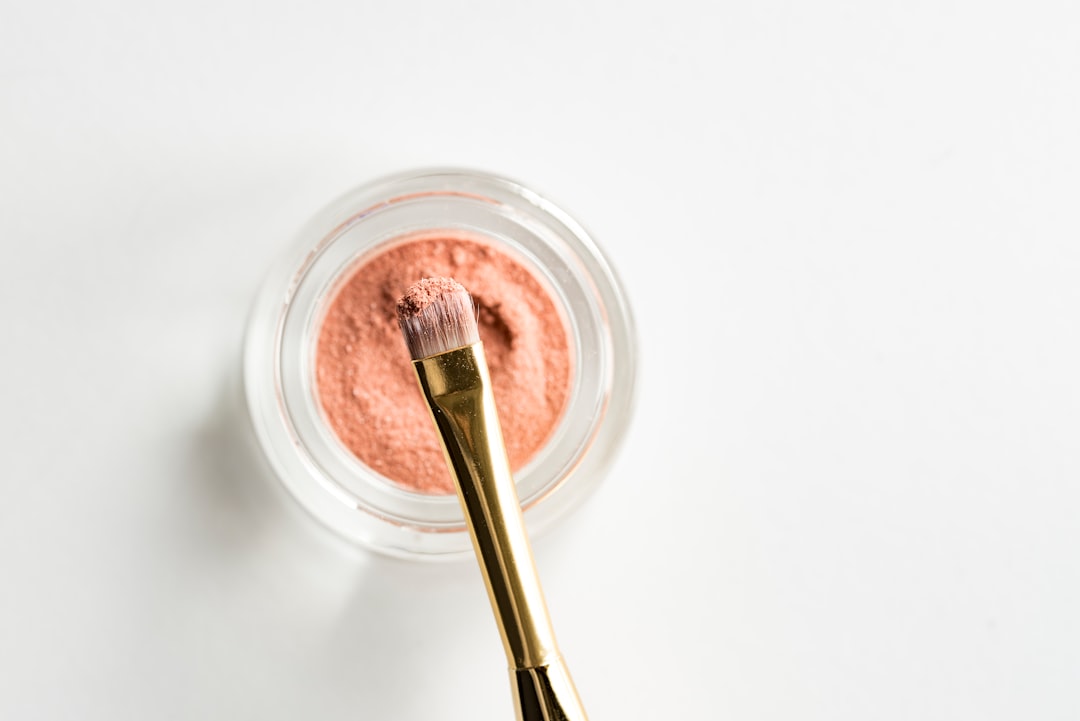
These hair DNA test kits work by sending the lab a sample of your hair, perhaps from a recent haircut or your hairbrush for analysis. Then based on your results, the company sends you bespoke hair products for your hair condition and type.
However, researchers also claim that some skincare-based DNA tests have high false-positive rates, as high as 40% (where you’re given a positive result when you should have a negative one). Unsurprisingly, the AMP doesn’t support cosmetic DNA tests either.
The Association for Molecular Pathology (AMP) opposes the marketing of DNA consumer tests for cosmetics because the claims are unsubstantiated.
That doesn’t mean that there isn’t a future for cosmetology DNA test kits. There are some studies which show that tests could help identify skin conditions stemming from uncommon genetic traits. Whether it’s for skincare or diagnosis, you should always consult a dermatologist about skin problems and treatments.
☝TIP☝When you order a DNA test online, check out the company’s credentials, laboratory accreditations, and scientific team before you purchase it.
The final word on DNA testing misconceptions and mistakes
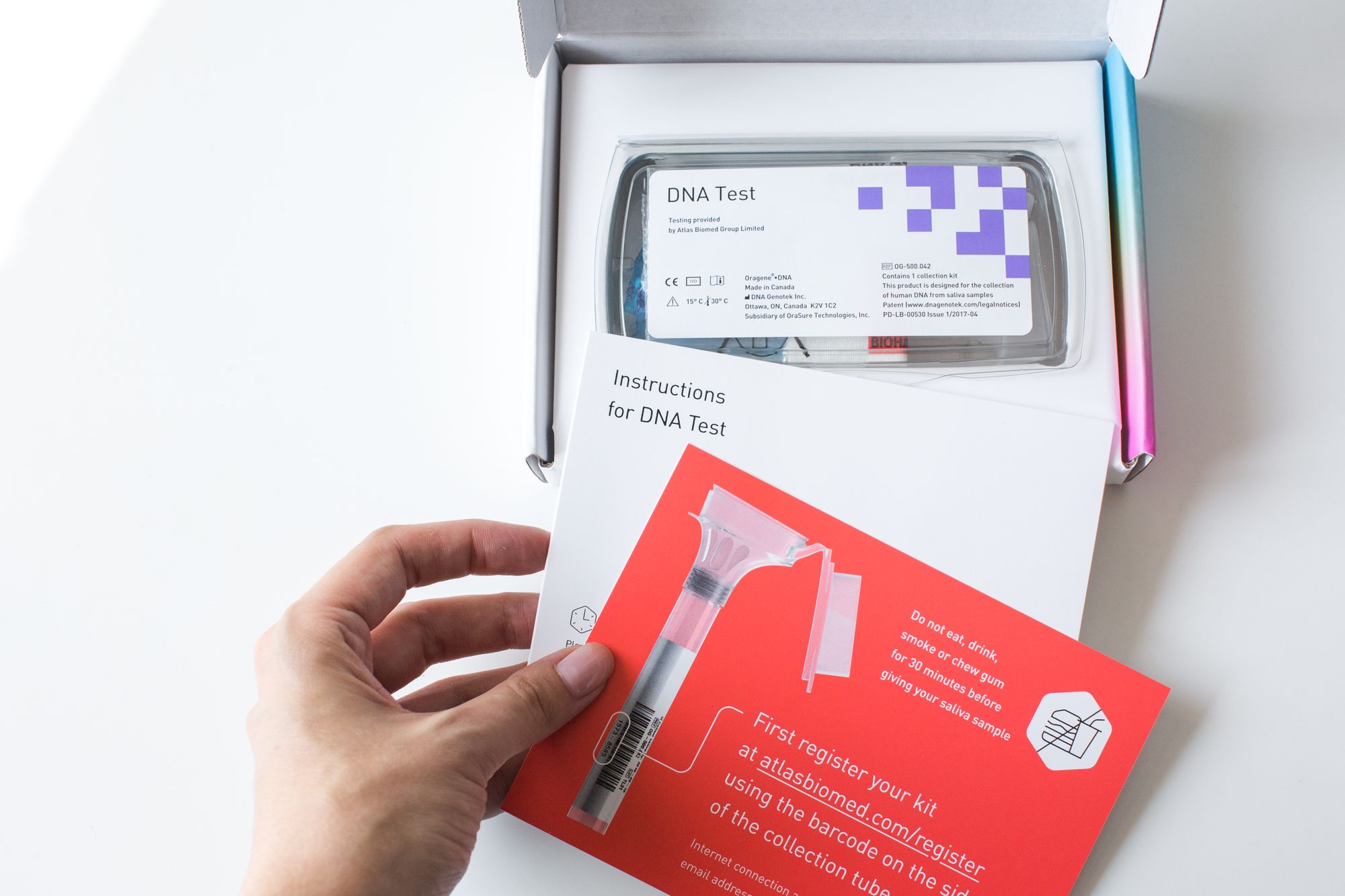
Just because you won’t discover unproven claims about your athletic ability, physical appearance, or diet doesn’t mean that all DNA tests are useless. As the molecular experts at the AMP put it:
“All health-related claims must have well-established clinical validity. The gene-disease association is robust and supported by strong scientific evidence in the peer reviewed literature, and/or is based on evidence referenced or annotated in current genetic/genomic databases.”
In other words, genomic testing should provide consumers with clinically valid products and services. That means there should be scientific evidence to back their claims up. That’s why Atlas provides links to all the scientific articles that support each trait in your personal account.
☝TIP☝The best DNA ancestry test depends on whether you want to connect with relatives or discover your ancient ancestors, but certainly not on your foot shape
- Association for Molecular Pathology. Association for Molecular Pathology Position Statement: Consumer Genomic Testing, 2019
- Berry S et al., Predicting Personal Metabolic Responses to Food Using Multi-omics Machine Learning in over 1000 Twins and Singletons from the UK and US: The PREDICT I Study OR31-01-19,2019
- Collier, R. Genetic Tests for Athletic Ability: Science or Snake Oil?, 2012
- Collier, R. Testing the Ethics of Genetic Testing in Sports, 2012
- Markiewicz, E and Idowu, O, C. Personalized Skincare: From Molecular Basis to Clinical and Commercial Applications, 2018
- Pickering, C and Kiely, J. ACTN3: More than Just a Gene for Speed, 2017
- University of Leicester. DNA, Genes and Chromosomes, 2020
- Varley, I et al. The Current Use, and Opinions of Elite Athletes ad Support Staff in Relation to Genetic Testing in Elite Sport Within the UK, 2018

